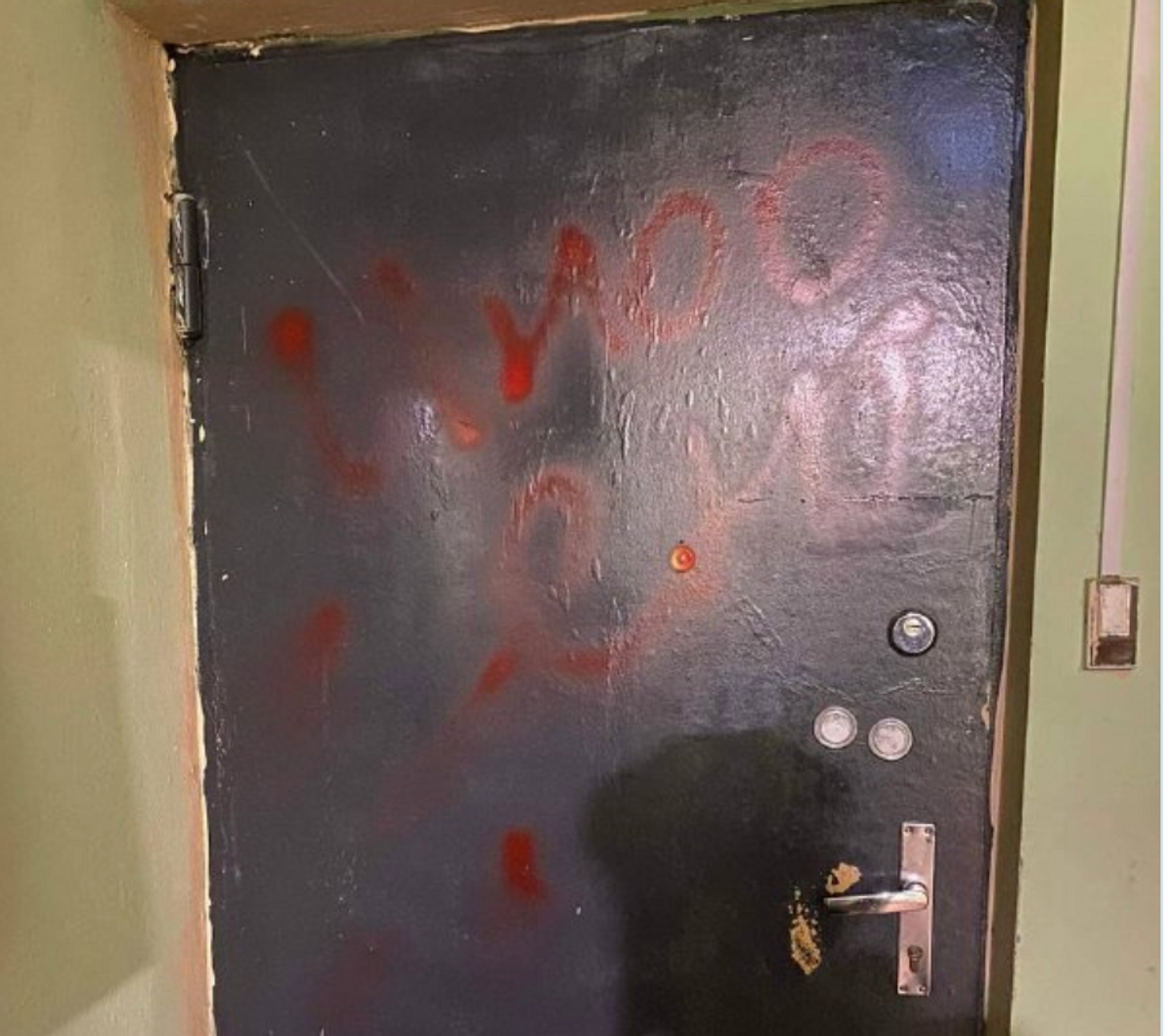The term “foreign agent” ("inoagent" in Russian short form) was painted in blood red over the weekend on the door of a Moscow apartment that belongs to Marat Guelman, a contemporary art impresario who, on 30 December, was placed on a list of “foreign agents,” a designation accompanied by numerous regulations and restrictions that is meted out by Russia’s justice ministry. The apartment was being used by Guelman’s mother, but he had just arrived in Moscow for a visit.
Commentators suggested he monetize his new status and sell the door as an art object.
The initial 2012 foreign agents law signed by President Vladimir Putin focused on NGOs that allegedly undertook foreign-funded political activity. In 2020 it was expanded to individuals. Miniscule sums or even money transferred from a foreign account are often used as a pretext. Russian officials say the law is similar to the Foreign Agent Registration Act in the US.
Guelman moved to Montenegro in 2014 due to the challenges of working in Russia following the annexation of Crimea and the conflict with Ukraine. A pioneer of the Moscow art gallery scene, he has previously been targeted by nationalists in the Russian capital. He was also squeezed out of Perm, a military-industrial city in the Urals where he had founded a contemporary art museum in 2009 under a liberal governor who has since also left Russia. At the same time, Guelman has been criticised by liberals in the past for working as a political strategist on controversial election campaigns in Russia and Ukraine. More recently, he has been vocal in his support for Aleksei Navalny, the jailed opposition leader.
Since 2019 Guelman has been venturing back into Russia with exhibitions on the protest artists Pussy Riot, Pyotr Pavlensky and the Voina group at the private Art4 Museum and made a major donation from his personal contemporary art collection to the State Tretyakov Gallery. He has also been working on projects with Ukrainian art, with which he has been associated going back to the late Soviet era. The Kremlin has been threatened with stiff new US sanctions should it invade Ukraine following a major troop buildup along the border.
Violating foreign agent rules results in large fines, so Guelman has been marking all of his Facebook posts and comments with a required introduction describing his text as that of a foreign agent. He also had to publish a lengthy financial report form that must be submitted to the justice ministry. In his case, since it was only for December 2021, he left most of it blank.
Journalists and LGBTQ and voting rights activists were among the first to be singled out as individual foreign agents, but Guelman predicted that cultural figures would also be swept up by the law.
In an interview on Sunday with RTVI, Guelman said that since “the majority of the opposition is either in prison or in hiding, and the media too has been dispersed,” as he had warned, attackers “will look for some new enemies to prove that they are indispensable” and that they would “start going after education and culture.”
Other cultural figures recently added to the foreign agents list include Pussy Riot’s Nadya Tolokonnikova and Veronika Nikulshina, as well as Viktor Shenderovich, a political satirist and unrelenting Kremlin critic. Shenderovich announced last week that he had left Russia to avoid prosecution. He has been targeted for criminal prosecution by Yevgeny Prigozhin, a businessman allegedly linked to pro-Kremlin trolls and a private army.
In December 2020, St Petersburg feminist artist and activist Darya Apakhonchich was among the first individuals in Russia to be labelled a foreign agent.


